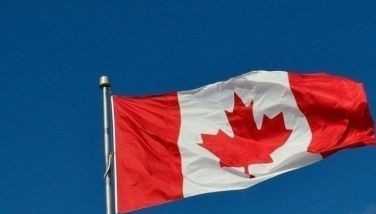Solon envisions 'highways on the seas'
Angelito Sarmiento has a dream.
![]() He envisions "highways on the seas" through which the country's agriculture and
fishery products can be transported to centers of commerce.
He envisions "highways on the seas" through which the country's agriculture and
fishery products can be transported to centers of commerce.
Long before he became a member of the House of Representatives, he had been nurturing the idea of "marine highways" in the country's territorial waters.
"Considering the country's archipelagic nature where its total water area is seven times that of land, Philippine agriculture should be water-based rather than land-based," Sarmiento asserted at the First Philippine Fisheries Forum held recently at the University of the Philippines-Marine Science Institute (UP-MSI) in Diliman, Quezon City.
The forum was sponsored by the Philippine Fisheries Association (PFA) with the support of the Los Baños-based Department of Science and Technology-Philippine Council for Aquatic and Marine Research and Development (DOST-PCAMRD).
It discussed the National Fisheries Development Action Plan (NAFDAP), which aims to make the country attain at least 80 percent self-sufficiency in fish by the year 2004.
Sarmiento, who chairs the House Committee on Agriculture, stressed that the use of marine highways for the inter-island distribution of produce can be more economical and better facilitated than concrete highways.
This prompted Bulacan's fourth district solon to file a bill in Congress seeking the renaming of the Department of Agriculture into the Department of Agriculture and Fisheries. And given the right priority by government, he believes that more political will in terms of budgetary support can be had for the development of the country's fisheries sector.
Also as co-chair of the Congressional Oversight Committee on Agriculture and Fisheries Modernization (COCA FM), Sarmiento knows from whence he speaks.
The fisheries sector, he emphasized during the Fisheries Forum at the UP-MSI, contributes 19 percent of the country's gross domestic product (GDP) but only gets 12 percent of the budget given to agriculture by the government.
Sadly, he lamented, fisheries remain an undervalued segment of the Philippine economy. "With the least investment cost in agriculture, our fisheries sector is contributing so much."
For instance, he noted, the country's export earnings from fisheries for products such as tuna, shrimp, and seaweeds reached $530 million in 1998. On top of this, fish is the staple animal protein source of Filipinos.
All these years, Sarmiento has been pushing hard for "highways on the seas" owing to the vast marine resources of the country.
In a privilege speech at the House of Representatives last August, he emphasized:
"As an archipelago of some 7,100 islands, the Philippines has an extensive coastline exceeding 17,000 kilometers in length and about 28 million hectares of coastal waters. The country also exercise authority over 220 million hectares of territorial ocean waters in its exclusive economic zone, over seven times its land area."
- Latest
- Trending




























